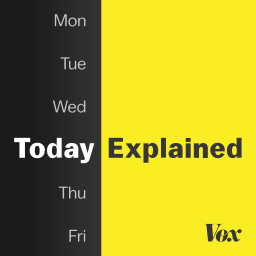
by User Interviews
Welcome to Awkward Silences by User Interviews, where we interview the people who interview people. Listen as we geek out on all things UX research, qualitative data, and the craft of understanding people to build better products and businesses. Hosted by Erin May and Carol Guest, VPs of growth/marketing and product at User Interviews. Take this survey and let us know what topics you want to hear next! userinterviews.com/awkwardsurvey
Language
🇺🇲
Publishing Since
11/26/2018
Email Addresses
1 available
Phone Numbers
0 available

April 9, 2025
<p>Much of the conversation around AI in UX involves how it will shape and change researchers' work. Today's guest, Jess Holbrook, who leads UX research for Microsoft AI, has been thinking a lot about how this technology can be improved with design and UX best practices. Jess has spent over a decade working on the UX of AI at companies like Meta and Google. He's also helped develop foundational principles for the ethical use of LLMs.</p><p>Jess joins Erin and Ben to reframe the AI conversation, focusing on how UXRs can and should adapt, what working on these systems has taught him about the UX discipline, and his philosophy for building teams that are ready to take on the innovative challenges of tomorrow.</p><p>Jess's recommendations: <a href="https://interconnected.org/home/">Matt Webb</a>, <a href="https://maggieappleton.com/">Maggie Appleton</a>, and the <a href="https://newsletter.pessimistsarchive.org/">Pessimists Archive Newsletter</a>. </p><p><strong>Highlights</strong></p><ul><li>07:15 Human-Centered AI Evolution</li><li>17:53 Evolving AI Forecast Strategies</li><li>24:04 Diverse AI Team Building</li><li>33:27 Navigating Responsible AI Challenges</li><li>37:01 Qualitative Analysis with AI Tools</li><li>40:15 Optimism and Concerns About AI</li></ul><p><strong>About Jess</strong><br>Senior Director of Research specializing in human-centered AI. Early stage investor in AI, AI hardware ecosystems, climate, and anything that seems like the world would be better with it in it. Currently leading UX research for Microsoft AI. Previously led the Generative AI team and supported all UX functions for the <a href="https://pair.withgoogle.com">Responsible AI and data transparency</a> teams at Meta. I also served on the Board of Forging Youth Resilience, a nonprofit that empowers young people to build physical and mental strength for life by providing access to a national network of community-based fitness programs and mentorship. </p><p><strong>Resources</strong></p><ul><li><a href="https://www.userinterviews.com/ai-in-ux-research-report">The AI in UX Research Report</a></li><li><a href="https://www.userinterviews.com/blog/ai-ux-research-tools">20+ Tools for Every Research Phase</a></li><li><a href="https://www.userinterviews.com/blog/ai-powered-ux-research-workflow">Using AI in UX: A Day-in-the-Life</a></li></ul>

March 26, 2025
<p>In this episode, Erin and Ben chat with Jay Vidyarthi, designer, author, and founder at Still Ape. Jay is a leading thinker around designing mindful product experiences. He's also published a new book, <a href="https://www.jayvidyarthi.com/#book">RECLAIM YOUR MIND</a>, which examines the balance of technology use and mindfulness in our everyday lives.</p><p>Jay shares his journey to working in the mindful technology space, how we can shift our frame from "user" to "life" experience design, and the benefits companies see when their products consider the whole person on the "other end." Jay also shares strategies for maintaining mindfulness during our own technology use, and ways we can carry these practices into research and design practices.</p><p><strong>Highlights</strong></p><ul><li>03:55 Design for Mindful Well-Being</li><li>08:13 Mindful Design: Impact Over Intentions</li><li>14:54 Broadening Design's Impact on Life</li><li>25:20 Holistic Recruitment Strategies</li><li>34:10 Enhancing Connection Through Mindful Presence</li><li>42:48 Understanding Technology's Emotional Pull</li></ul><p><strong>About Jay</strong><br>Jay Vidyarthi is the author of RECLAIM YOUR MIND and an accomplished designer, entrepreneur, and thought leader at the unique intersection of mindfulness and technology. As the founder of Still Ape, he’s been involved in over fifty technologies that have helped millions of people improve their well-being, including Muse, the Healthy Minds Program, Sonic Cradle, and many more. His work and ideas have been featured by Harvard, MIT, TED, Forbes, CNN, Fast Company, and Vice.</p><p><strong>Resources</strong></p><ul><li><a href="https://www.userinterviews.com/blog/self-care-for-ux-researchers">The Self Care Playbook for UX Researchers</a></li><li><a href="https://www.userinterviews.com/blog/cultivating-empathy-for-colleagues-and-collaborators">Cultivating Empathy for Your Colleagues</a></li><li><a href="https://www.userinterviews.com/blog/wellness-and-ux-christelle-ngnoumen">Wellness and UX: Going Beyond the User Experience</a></li></ul>

March 12, 2025
<p>Many research activities are completed by non-researchers, but whose work is benefited from user insights. Generally, these folks—designers, PMs, developers, among others—are called "PwDR" or "people who do research." In addition to their own work, many UX researchers and operations specialists are focusing on educating and empowering this group. When stakeholders and colleagues are better informed on the hows and whys of user research, more of it gets done, more insights are integrated, and customer experiences improve.</p><p>Daniel Gottlieb, Head of Research Operation for Microsoft's Developer Division, has spent a lot of time designing research education programs. He joins to discuss his success creating workshops that empower and inspire non-researchers to get involved. He shares the parts of a good workshop, ways to keep attendees engaged, and how he measures success.</p><p>This is a revealing conversation for anyone who has wondered what successfully "democratizing" user research could look like. Daniel brings pragmatism and positivity to research education. You'll leave with a better sense of how to begin educating your own stakeholders on the power of user research, and maybe even get a democratization practice up and running.</p><p><strong>Highlights</strong> </p><ul><li>12:12 - Empowering UX Researchers Multiplies Impact </li><li>17:21 - Collaborative Research and Customer Insights </li><li>22:08 - Guided Customer Research Workshops </li><li>27:22 - Building Excitement Through Coaching </li><li>36:38 - Benefits of Diverse Group Dynamics </li><li>38:25 - Empowering Developer-Led Research Showcase </li></ul><p><strong>About Daniel</strong><br>Daniel Gottlieb is the Head of Research Operations for Microsoft’s Developer Division User Research Group. He received his PhD in Animal Behavior from the University of California, Davis, where he focused on animal welfare (quality of life) and primate (monkey) behavior. Daniel moved from researching monkey behavior, to managing research logistics at a National Primate Research Center, to managing UX Research Operations in Microsoft’s Developer Division. He is passionate about making research easy and accessible, teaching, and finding ways for disparate groups to work together to support a unified research mission.</p><p><strong>Resources</strong></p><ul><li><a href="https://www.userinterviews.com/events/pwdr-hour">PwDR questions answered live</a> by UXpert Nikki Anderson</li><li><a href="https://www.userinterviews.com/blog/people-who-do-research-discovery-study">Discovery research exploring</a> "people who do research"</li><li>The "<a href="https://www.userinterviews.com/state-of-research-for-non-researchers">State of Research for Non-Researchers</a>" Report</li></ul>

Nielsen Norman Group

Jane Portman

The Curiosity Department, LLC

Lenny Rachitsky

Hidden Brain, Shankar Vedantam

TED

This American Life

NPR

Vox

The New York Times

Morra Aarons-Mele

New York Times Opinion

Steve Portigal

Nick & Jack Studios
Pod Engine is not affiliated with, endorsed by, or officially connected with any of the podcasts displayed on this platform. We operate independently as a podcast discovery and analytics service.
All podcast artwork, thumbnails, and content displayed on this page are the property of their respective owners and are protected by applicable copyright laws. This includes, but is not limited to, podcast cover art, episode artwork, show descriptions, episode titles, transcripts, audio snippets, and any other content originating from the podcast creators or their licensors.
We display this content under fair use principles and/or implied license for the purpose of podcast discovery, information, and commentary. We make no claim of ownership over any podcast content, artwork, or related materials shown on this platform. All trademarks, service marks, and trade names are the property of their respective owners.
While we strive to ensure all content usage is properly authorized, if you are a rights holder and believe your content is being used inappropriately or without proper authorization, please contact us immediately at [email protected] for prompt review and appropriate action, which may include content removal or proper attribution.
By accessing and using this platform, you acknowledge and agree to respect all applicable copyright laws and intellectual property rights of content owners. Any unauthorized reproduction, distribution, or commercial use of the content displayed on this platform is strictly prohibited.